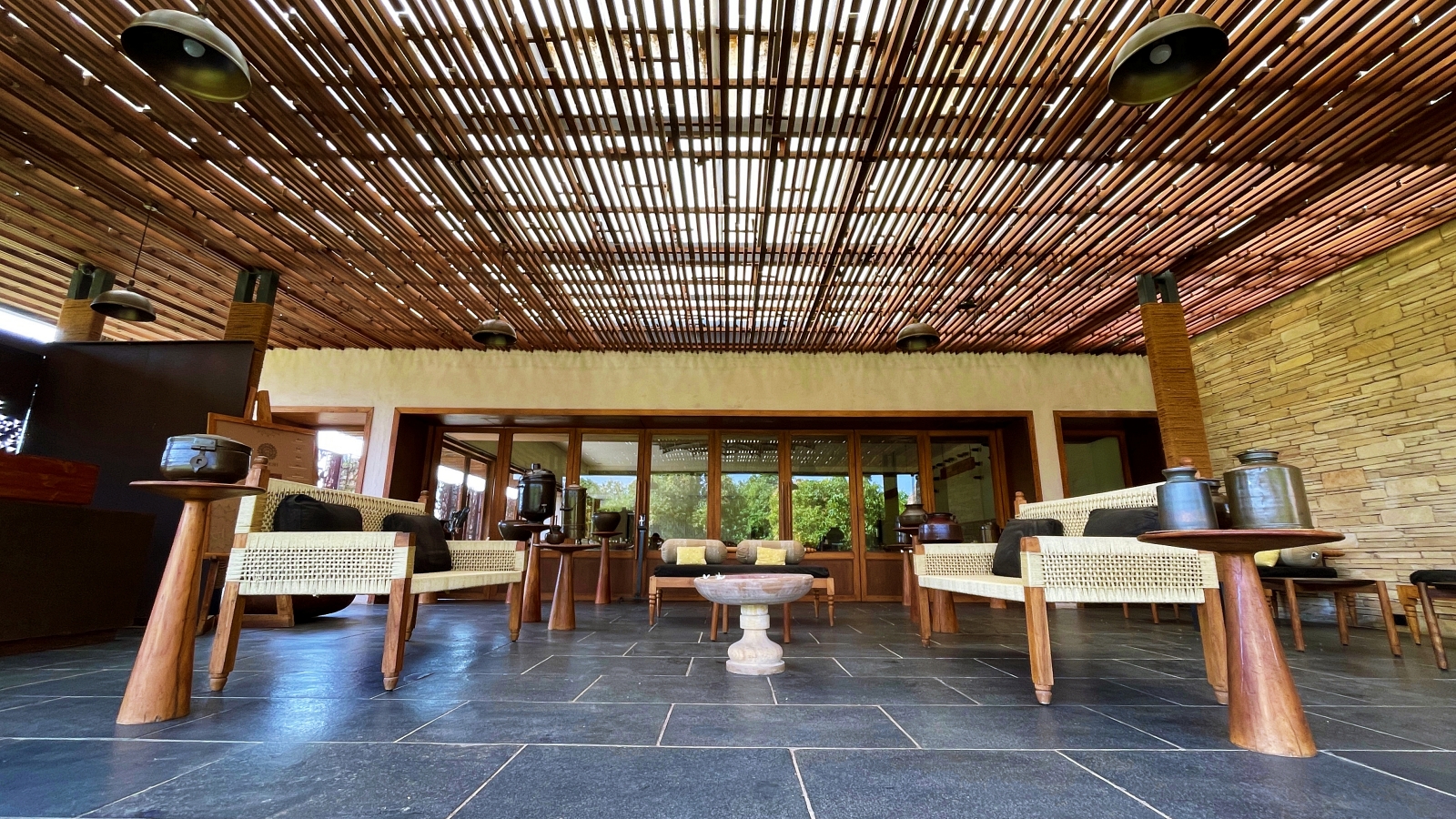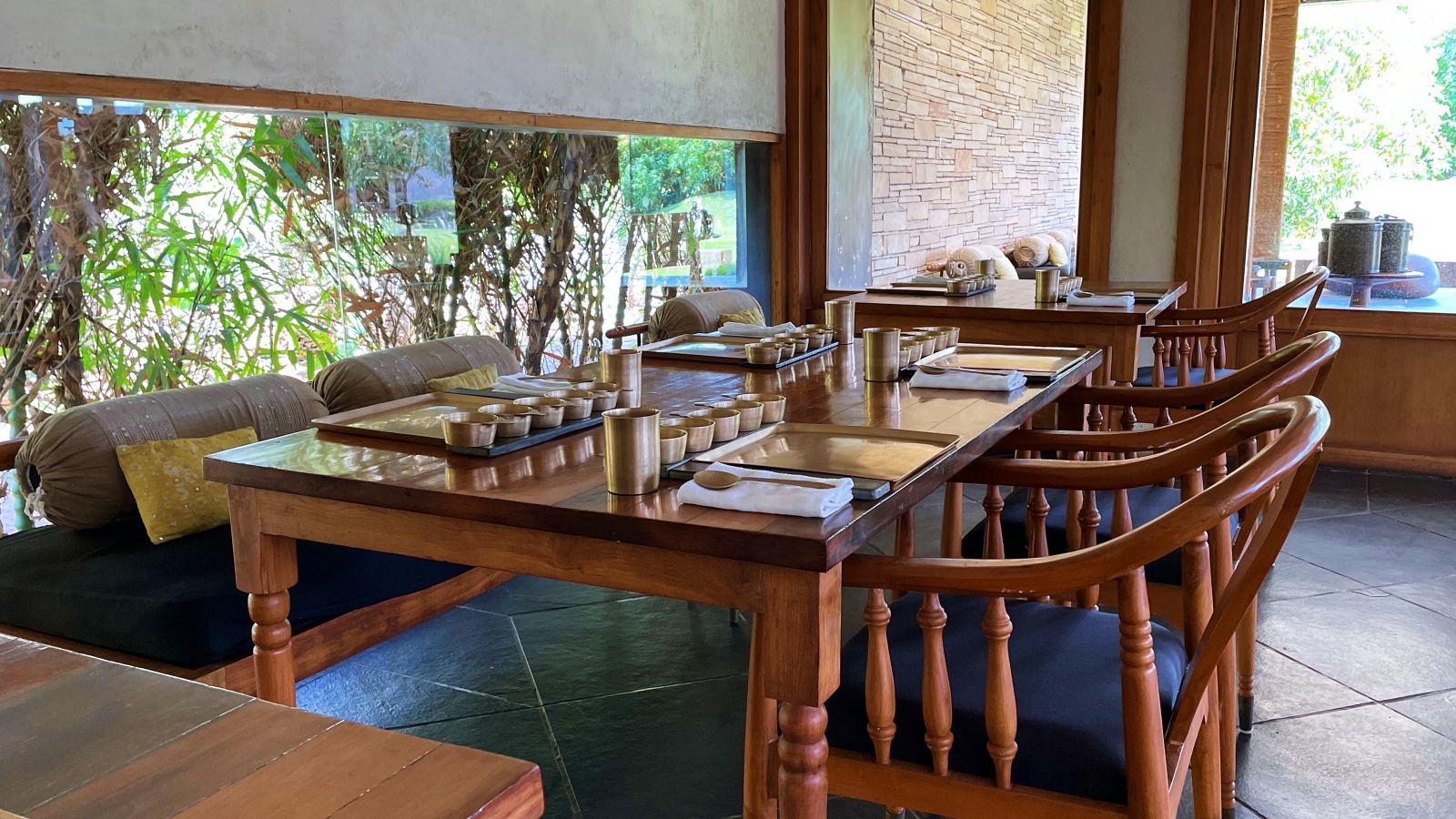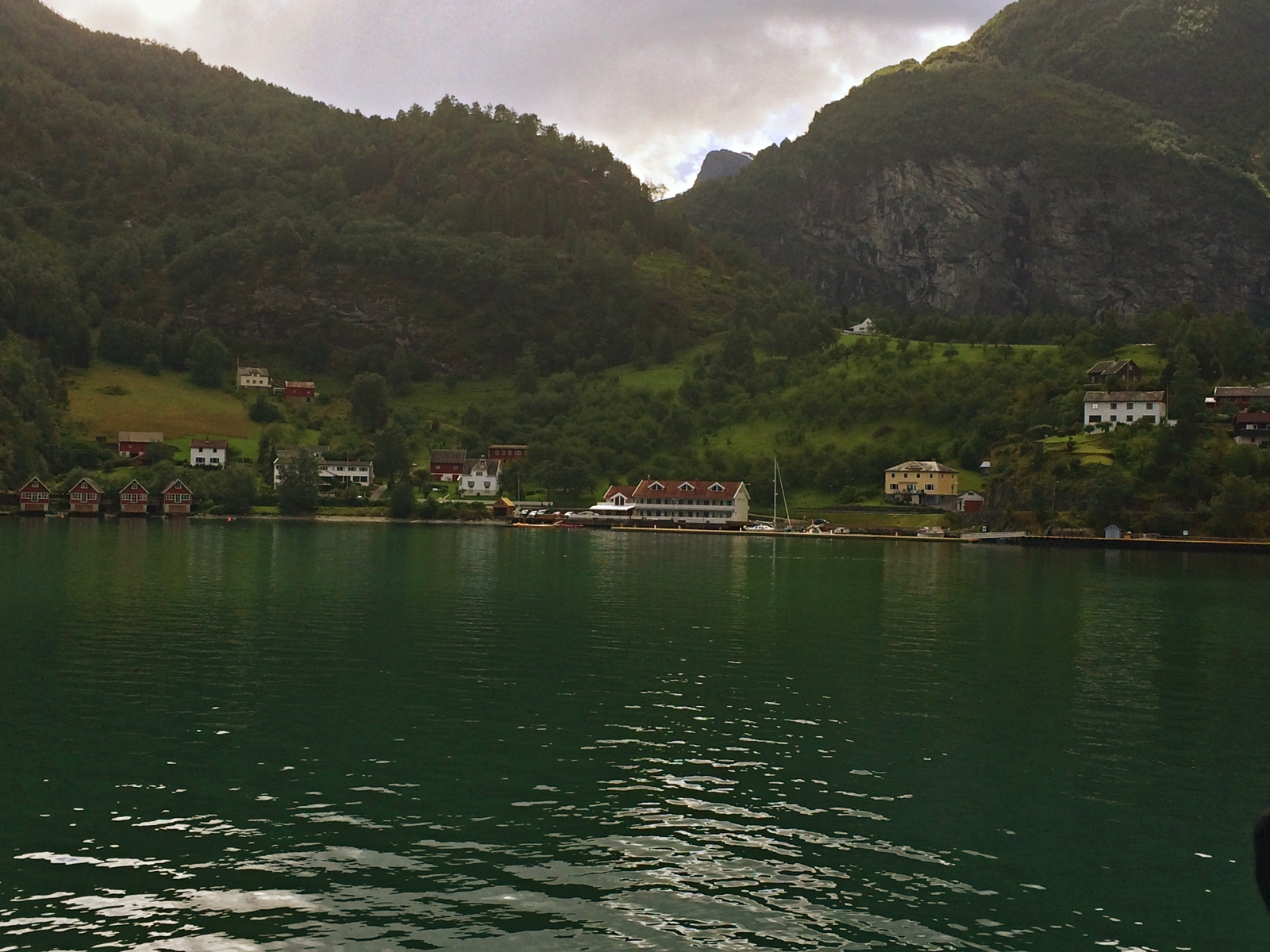Find Your Balance at Woods at Sasan: Where Wellbeing Meets Sustainability
Forget cookie-cutter resorts, the Woods at Sasan is where sustainability gets its groove on! Nestled amidst the lion’s roar and emerald greens of Gir, this place isn’t just eco-friendly, it’s whispering secrets of the earth itself. Todi masonry passed down like family heirlooms, form the walls, while Bela stone, fresh from the local quarry, paves the way, echoing tales of ancient dust beneath your wheels. Corten steel, like a seasoned adventurer, weathers gracefully, reflecting the timeless spirit of the land. And the story? It all started with a logo by Todojunto, a harmonious blend of nature’s symphony and human ingenuity.
“As the first regenerative retreat in India and the fourth in Asia to join the esteemed Regenerative Travel community, Woods at Sasan embarks on a transformative journey that transcends the boundaries of traditional sustainability,” says Nilay Saran, senior business director of 1000 Island Hotels & Resort Pvt. Ltd.
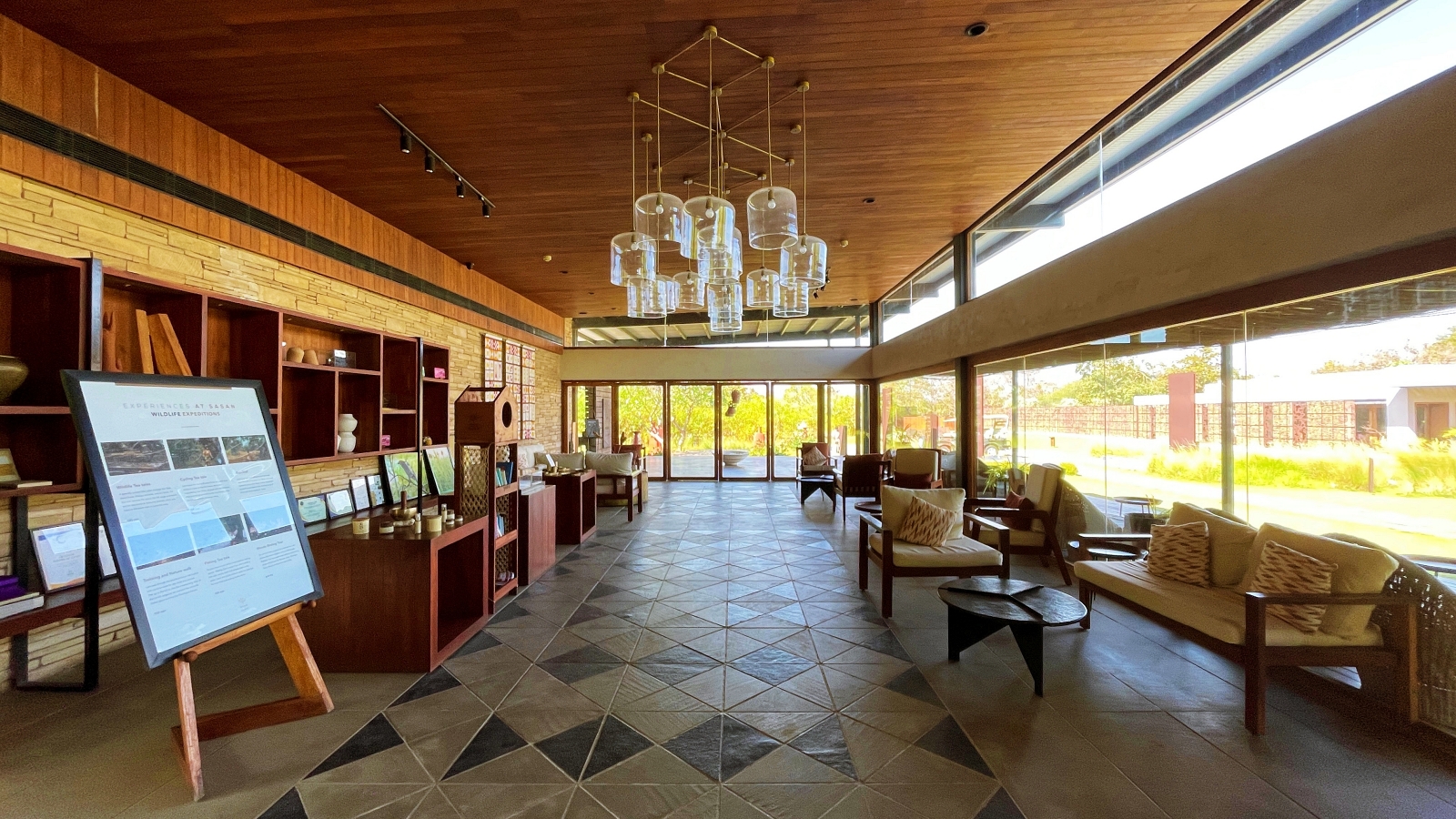
Enter the Woods at Sasan’s reception and you will be met with earthy chic vibes. IPE wood that’s seen it all (think driftwood with a designer tan) flows into walls the colour of calming greys and minty meadows. Kota stone, straight from Mother Earth, grounds the whole scene. Reclaimed wood whispers stories of redemption, while beadwork and a chandelier inspired by the floor (because who doesn’t love a touch of playful narcissism?) add sparkle. Cane weavings and Khadi textiles murmur traditions of old, while fancy furniture by designers beckons you to sink in and chat. Stone and rope panels by Vishal, the man with the Midas touch, bring texture to the party and the reclaimed wood whispers sweet nothings about nature’s embrace. To top it all off, a Khatu stone washbasin, etched with ancient motifs, reminds you that even washing your hands can be a historical adventure.
Table of Contents
Sustainable Architecture
The original site of Woods at Sasan was, and still is, a flourishing mango orchard. The retreat ‘grows’ out of the land, with a minimum of built area. Using Traditional Ecological Knowledge (TEK) was crucial in designing the retreat as well as minimising carbon footprint. Thickly wooded areas with diverse flora and fauna create a beneficial microclimate. There is extensive use of natural stone in construction. 9” and 18” thick walls are made from local Bela stone and covered with lime plaster – a local building technique to keep spaces cool in summer.
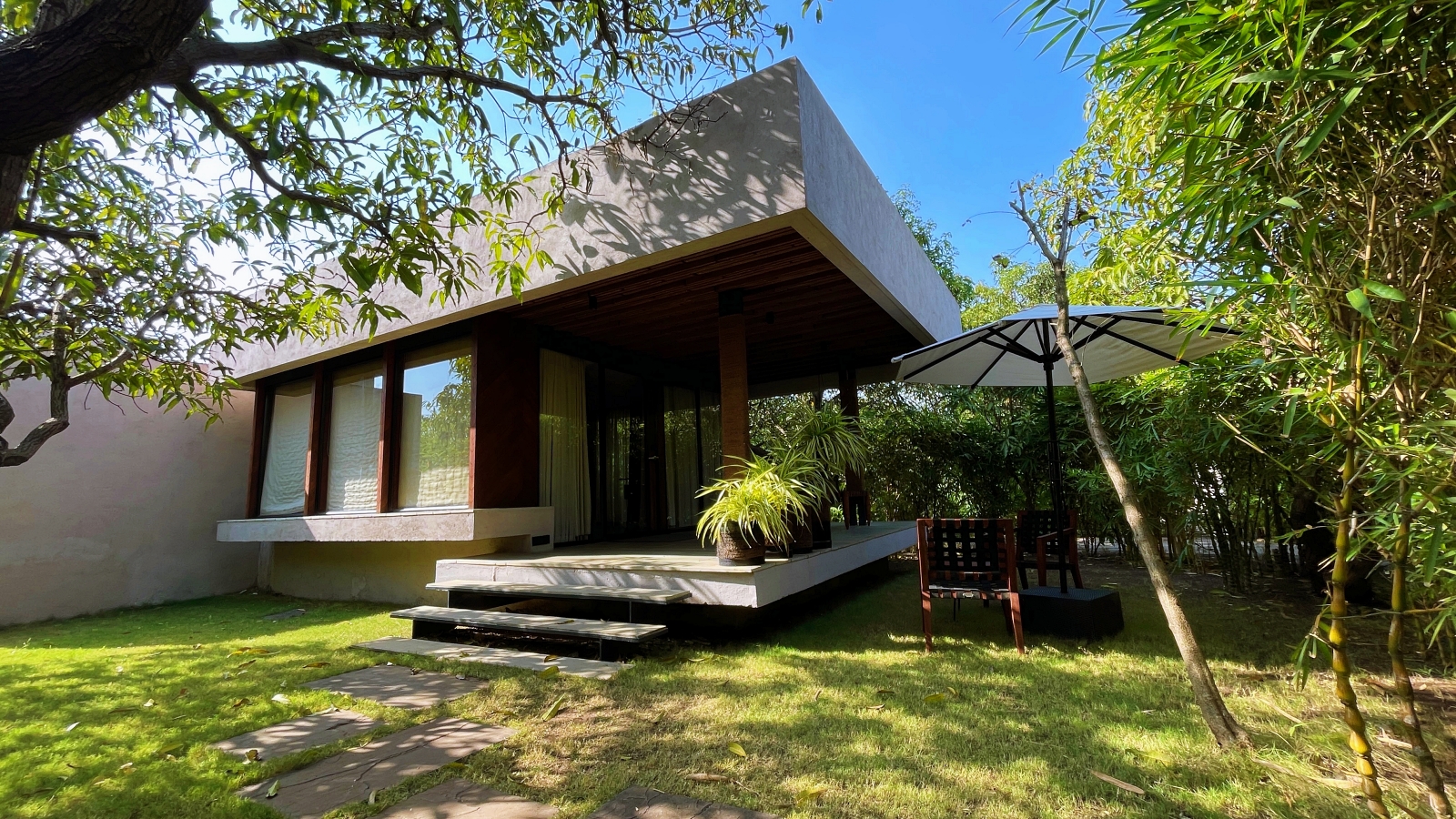
Stays have corrugated sheet roofing providing thermal and acoustic insulation. The glass panels between the roof and walls allow filtered natural light into the room areas, subtly helping to align circadian rhythms. The interiors are a blend of handcrafted furniture of reclaimed wood, bamboo accessories, hand-made ceramics, terracotta and macrame decorative items, mud-work wall art, beadwork, pottery and hand-dyed khadi furnishings made by local artisans.
Accommodation
Double steel columns, strong and graceful, stand as a sentinel, leading to the studios. Each studio, a floating plinth nestled among the mango trees, whispers promises of privacy and connection. Verandahs embrace the landscape, while the east-west orientation ensures natural light and cooling. Lime plaster, nature’s air conditioner, keeps the interiors breezy. Macrame panels, ceramic handles, and vintage switches whisper of understated charm, while pulleys, jastikhilla door knockers, and bamboo-screened skylights add whimsy. Khadi dip-dyed textiles and bamboo room accessories whisper of conscious luxury, while stone dust bathroom accessories speak of earth’s bounty.
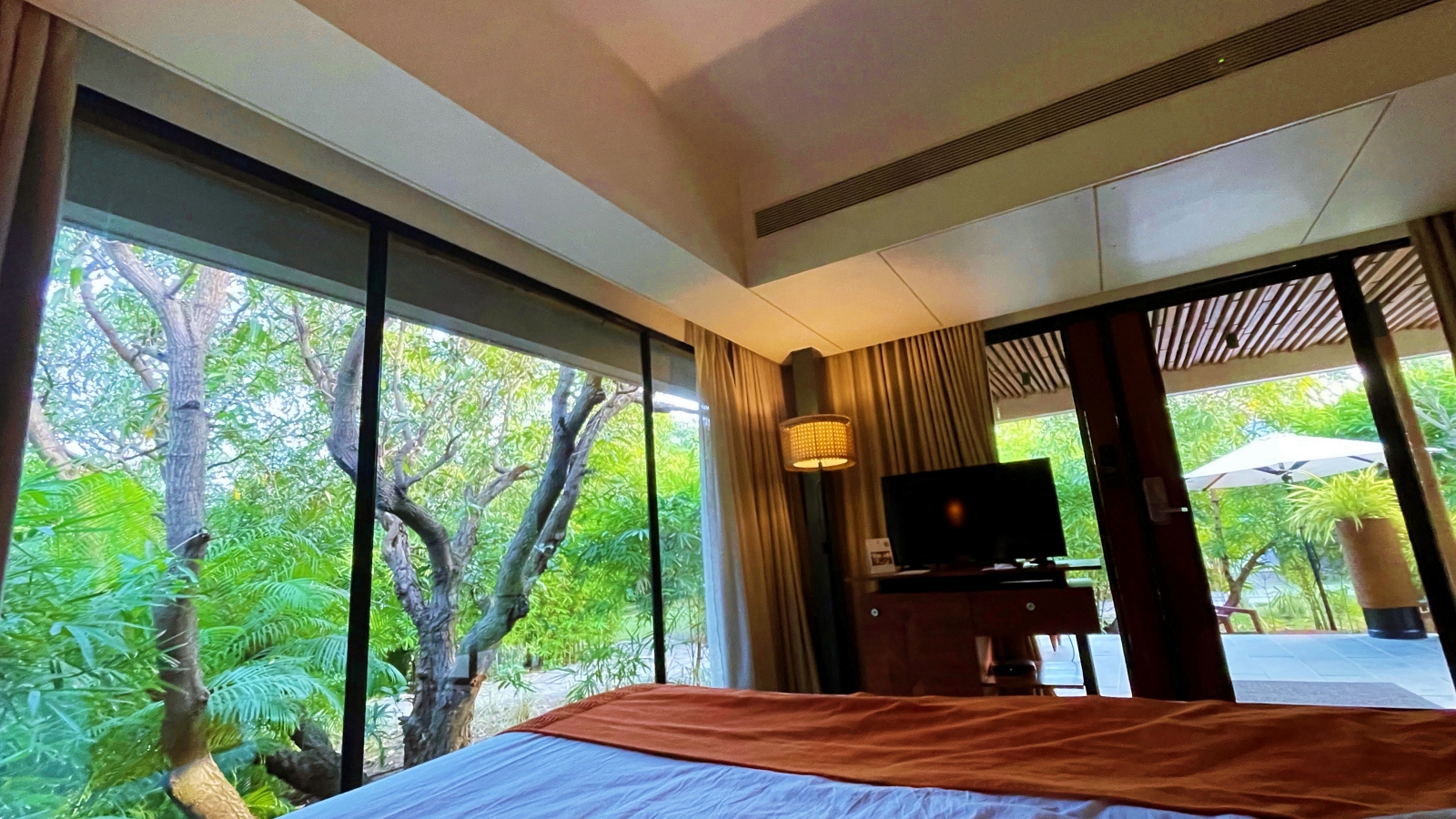
Wood Pavilion, perched on high plinths and open on three sides, offer breathtaking views. Each zone catered to a different mood, all while maintaining a connection to nature. Reclaimed wood, metal, aluminium, ceramic washbasins, and engineered wood with pinewood ceilings create a unique blend of rustic and modern. A private garden, swing-adorned deck, open showers, and a bathtub promise indulgence. Thread artwork and banana rope curtains add bohemian charm, while pleated Khadi sagas of understated elegance. The Woods villa, boasts three bedrooms, a splash pool, two dining areas, and a garden-view bathroom with a bathtub. Interior materials whisper of opulence, with hand-woven rugs, customized Mata ni Pachedi art, rope weaving, fruit tree panels, ceramic tea light holders, and bamboo mirrors adding a touch of regional flair.
-
Large windows connect indoors and outdoors for ample daylight.
- 100% of habitable spaces have Lux levels of at least 108.
- 3% of spaces with Lux levels >2200.
- 97% of spaces have adequate
- Natural daylighting levels greater than 108 lux, but less than 2200 lux.
- The hardscaped area is largely semi-pervious (tessellated tiles with grass) to maximise rainwater percolation.
Organic Farm
Fragrant lime plaster and sun-warmed stones create a sensory journey through the edible garden, whereas earth’s embrace and the freshest ingredients lead you to the heart of the kitchen.
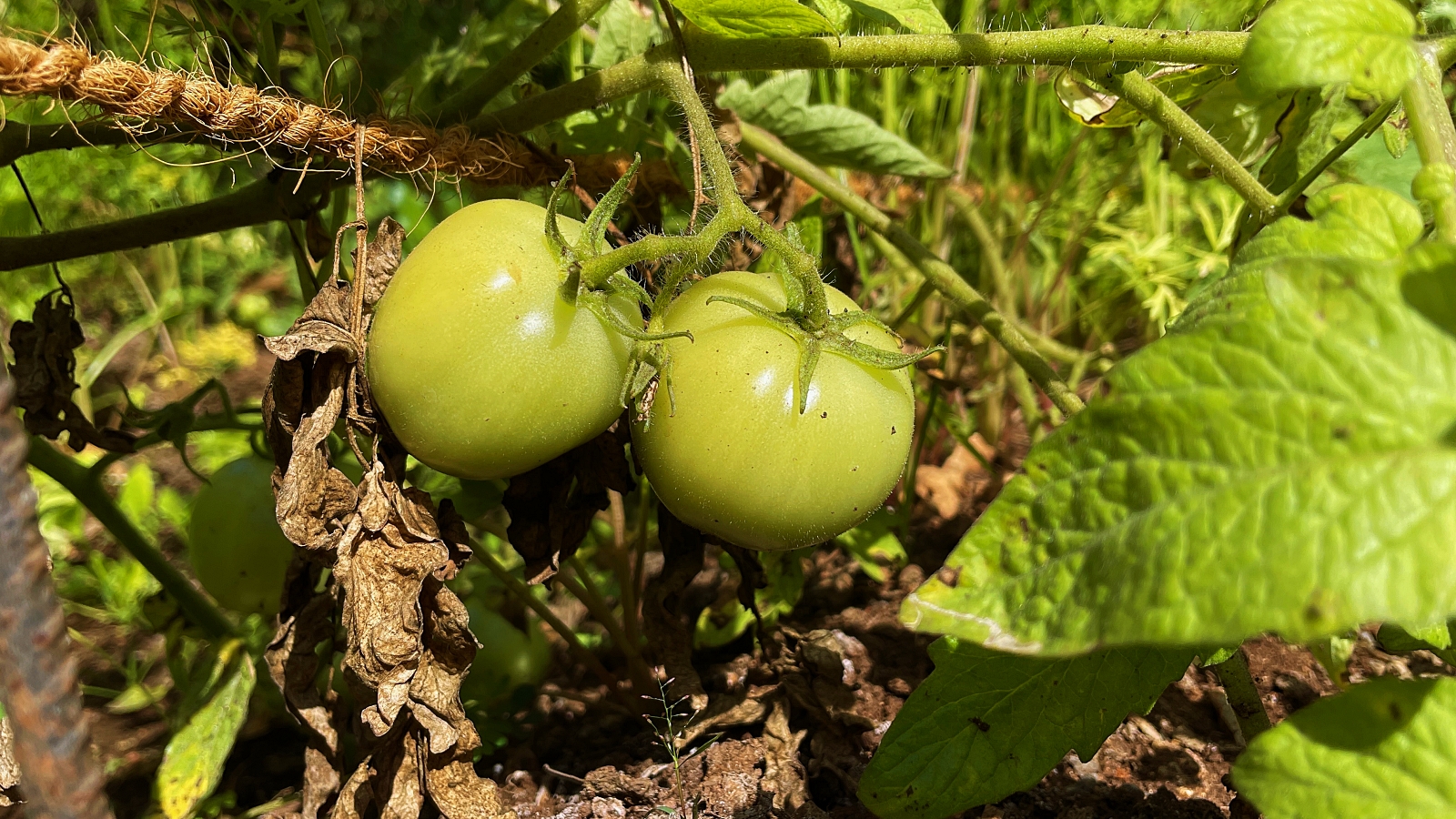
“Our sustainable food practices include menus that adapt to the seasons and feature locally grown, mindfully sourced organic produce. We avoid produce that requires transportation over long distances – this reduces our carbon footprint while simultaneously offering our guests a variety of fresh, tasty and highly nutritious, locally sourced produce. We also grow a sizable portion of our fruit and vegetables at our Edible Garden. We have undertaken initiatives to reduce food wastage through maximising composting, with the resultant compost used to feed the Edible garden for better yearly yields,” says Nilay Saran.
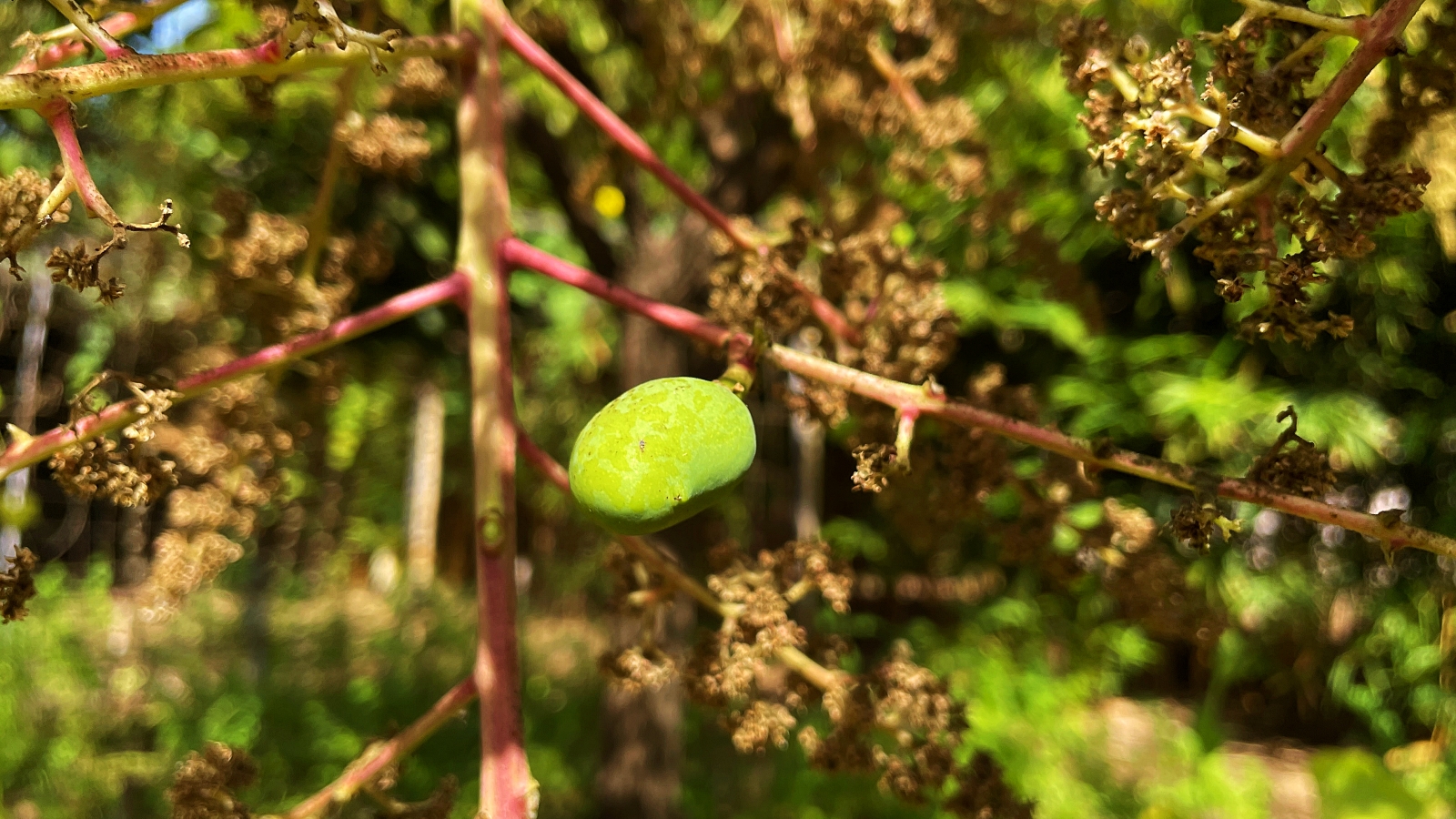
Indigenous vegetables such as onion, cabbage, potato, coriander, lemon, methi, chillies, brinjal and radish among others, are either grown in-house or locally sourced. Exotic vegetables such as zucchini, peppers, corn, broccoli, mushroom, leek etc. are sourced from within 400 km. Indigenous fruit grown in-house or locally include mango, coconut, banana, papaya, orange, pomegranate, and pineapple among others. Exotic fruits such as kiwi, dragon fruit, musk melon, apples etc, are sourced within 400 km of the retreat. The property aims for a zero-waste food practice as an ethical, economical and sustainable way of being – to guide people towards a better, healthier lifestyle.
Amrit Mitti
Amrit Mitti is 4 month process of making top soil which, in nature, takes more than 200 years. It is full of all nutrients needed by plants, rich in a variety of microbes, has the right pH, high carbon content and has excellent water-holding capacity. The Resort Horticulture team works on-site continuously to prepare their soil from landscape waste i.e. dry and green leaves, an excellent source of nutrients. This is processed into Amrit Mitti in specially prepared beds along the walls of the retreat. Once ready, it is then used in the organic farm to improve the yield.
Bioneer Plant
The Bioneer is a revolutionary automatic waste converter that treats organic waste in under 24 hours. Viable food waste from the retreat is treated at our in-house bioneer plant. Food waste is used in composting.
Restaurants
Step into Swadesh restaurant, the resort’s beating heart, where every nook and cranny sings its praises. Swadesh isn’t just a name; it’s a declaration of independence, proudly flaunting local materials like Kadappa, brass, teak, and Ipe wood. Gabion walls, laced with river stones, share tales of resilience like an old friend. Mudwork and mirror patterns, delicately etched, murmur secrets of ancient crafts, while Chundana and nail-and-thread masterpieces breathe life into the surroundings. Brass accents glisten with the warmth of a welcoming embrace, and Khadi silk whispers stories of artisans’ expertise, embroidered with love and tradition. In Swadesh, every element speaks volumes, and each Thali tells a tale worth savouring.
The pool complex, with its home gym, babool wood kids’ room, terracotta-tiled concept, and mango bar, offers something for everyone. The infinity pool shimmers under the sky, while the alfresco area buzzes with life. A wood-fired pizza oven, adorned with mud plaster, stands as a testament to culinary traditions. Terracotta held court, showcasing farm-fresh produce, while reclaimed wood, Kota, and Ipe wood provided a sturdy foundation. Plate installations, a dessert table, display pots, ambawadiyu wall paintings, terracotta lanterns, and an Ala Carte menu caters to every whim.
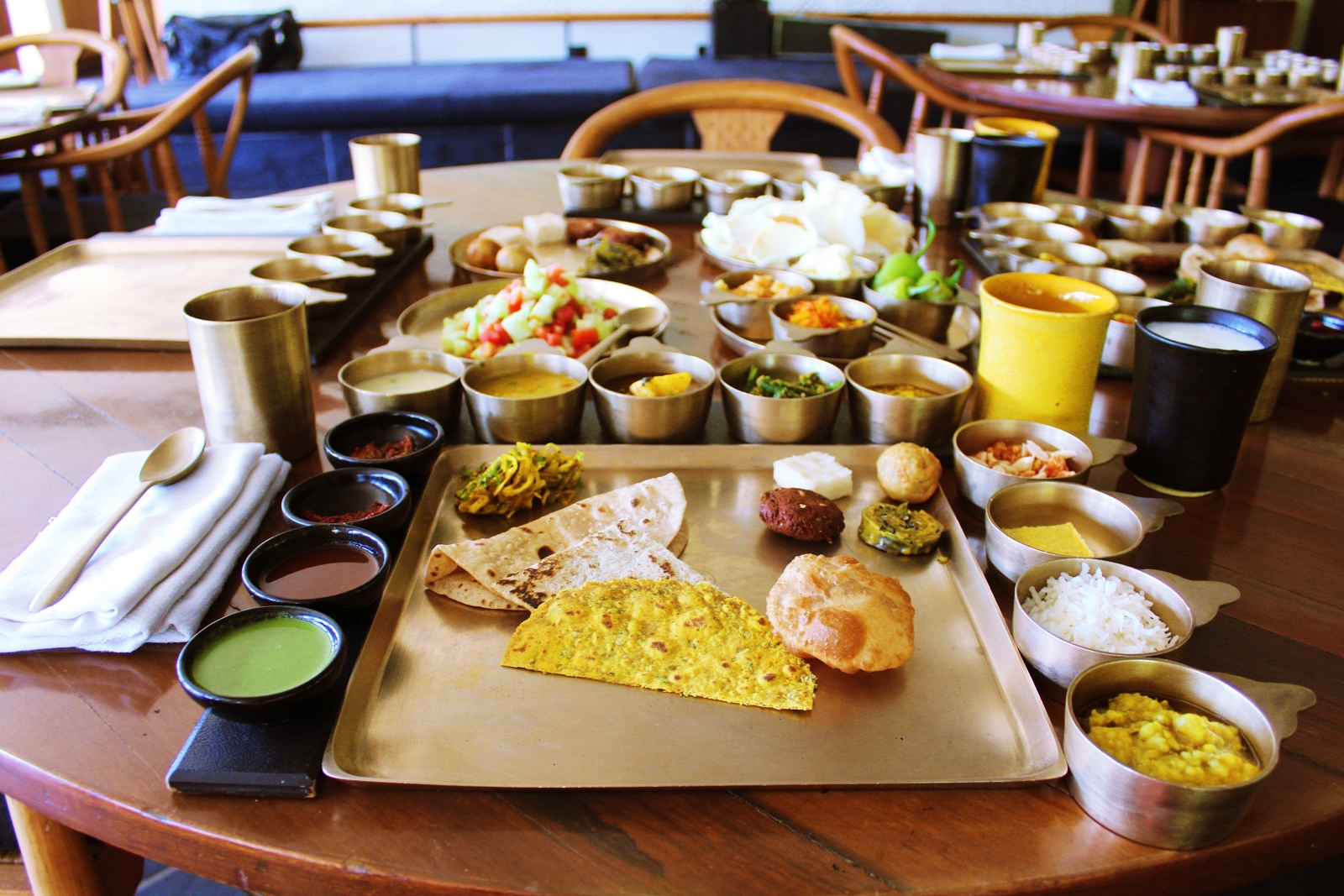
The landscape, dotted with rocks and adorned with signage, guides guests towards the spa. Open to the sky, its Kota stone roof whispers of openness, while Som art and local product displays showcase the region’s artistic spirit. Each treatment room, be it a single, double, salon, mud therapy, or meditation, offers a haven of tranquillity, clad in Kota stone, grass mat ceilings, and cane panelling. Spa thread runners, banana rope cushions, and bamboo chick curtains whisper of nature’s touch.
Regenerative Tourism
Regenerative tourism, a paradigm shift beyond mere sustainability, seeks to rejuvenate ecosystems, uplift communities, and preserve cultures. It operates on the philosophy of giving more than it takes, leaving a lasting positive impact on the destination. The inclusion of Woods at Sasan in the Regenerative Travel community signifies a commitment to this ethos, positioning the retreat as a thought-forward destination for eco-conscious travellers worldwide.
Honouring Sense of Place
Woods at Sasan celebrates the vibrant heritage of Sasan Gir and Gujarat, echoing the arts, crafts, and culture of the region in every corner. From nail-and-thread installations to lippan mudwork walls, mata-ni-pacchedi wall hangings to khadi furnishings, the retreat breathes life into the essence of the locale. Architectural materials are thoughtfully sourced locally, with lime plaster adorning the walls, creating a harmonious blend of tradition and contemporary design.
Hospitality
The retreat’s approach to hospitality is a seamless blend of friendliness, inclusivity, and respect for guests, staff, community, and environment. The food and beverage offerings mirror the flavours of the region, with Swadesh restaurant serving authentic Gujarati thali and Sattvic Meal Plans crafted from fresh, locally sourced, and organic produce. Guests are treated not just to meals but to an authentic journey into the heart of the region.
Inclusive and Egalitarian
Over half of the retreat’s workforce is drawn from the local community, a testament to its commitment to inclusivity. Capacity building, staff training, and career advancement opportunities are not just initiatives but a way of life, fostering a sense of pride and ownership among the local employees.
Responsible and Ethical Operations
Woods at Sasan is deeply immersed in regenerative practices, with over 90% of produce sourced locally and initiatives such as on-site composting and Amrit Jal production. The commitment extends beyond the retreat, encompassing tree plantation drives, collaboration with over 100 partner firms, and a mobile Community Library, illustrating the profound impact on both the local and global community.
Respect for Local and Global Ecosystems
Regenerative farming techniques, air quality monitoring, and a plastic-free environment underscore the retreat’s dedication to respecting both local and global ecosystems. As signatories to the World Animal Protection pledge, Woods at Sasan ensures ethical tourism practices that prioritize conservation and peaceful coexistence with the region’s diverse flora and fauna.
Communication of Regenerative Values
Actively engaging guests in the regenerative journey, the retreat organizes immersive experiences such as farming, composting, and Amrit Jal making. Knowledgeable staff and in-house naturalists stand ready to answer queries, fostering a deep understanding of regenerative practices among guests. In the realm of responsible hospitality, Regenerative Travel is the future, and Woods at Sasan emerges as a trailblazer, setting the bar for regenerative travel in India. As part of a like-minded community, the retreat looks forward to shaping a sustainable and regenerative future for the hospitality industry. The journey has just begun, and Woods at Sasan invites travellers to join hands in redefining the future of travel—one that gives more than it takes, leaving a legacy of positive impact for generations to come.

